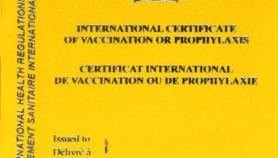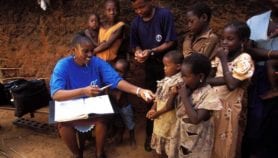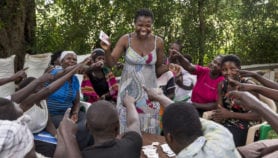By: Priya Shetty
Send to a friend
The details you provide on this page will not be used to send unsolicited email, and will not be sold to a 3rd party. See privacy policy.
An independent study has rejected claims that research on a drug commonly used to prevent mother-to-child transmission of HIV was flawed.
The original research, conducted in Uganda in 1997, had supported use of the drug nevirapine, but reports later suggested that poor record keeping put its conclusions into question.
Last week (8 April), the Institute of Medicine, Washington DC, United States, published an independent assessment of the Ugandan trial, declaring that it was “both scientifically sound and ethically implemented”.
The Ugandan drug trial was funded by the US National Institutes of Health (NIH) and conducted by researchers from the United Kingdom, the United States and Uganda, led by Laura Guay of Johns Hopkins University, United States.
In a paper published in The Lancet in 1999, the researchers had concluded that nevirapine reduced the risk of HIV transmission to babies by nearly 50 per cent during the first 14-16 weeks of their life.
Since then it has widely been used in developing countries to prevent the transmission of HIV from mothers to their children during pregnancy and childbirth, or through breastfeeding.
The allegations stemmed from concerns expressed internally at the NIH about the way data was recorded during the trial. An NIH investigation into the trial later that year concluded that although it was “not perfect”, the trial’s results were valid.
Several international scientists and HIV/AIDS activists also stood by the trial’s finding, especially after independent studies in South Africa, Malawi and Thailand confirmed the results.
Yet doubts remained. In December 2004, Arthur Ammann, president of Global Strategies for HIV Prevention, a US-based non-profit organisation, told Nature that some mothers in Africa were refusing to take nevirapine because of the bad press it had received (see Scientists defend use of AIDS drug).
In an effort to put these claims to rest, the NIH commissioned the Institute of Medicine to conduct an independent review of the trial’s design and methodology.
The institute’s review committee assessed information from the original researchers and the NIH, and from previous audits of the study.
To test the study’s results independently, the committee also examined medical records for 49 of the 496 babies involved in the trial.
But the committee found no evidence that any deaths had gone unreported and concluded that the researchers had accurately recorded data on the survival and infection rates of newborns.
It concluded that the research does indeed show that nevirapine safely and effectively prevents mother-to-child transmission of HIV.
More on Ethics
News
African biosafety ‘still neglected’
[JOHANNESBURG] The implementation of biosafety practices is being hampered by inadequate04/07/12












